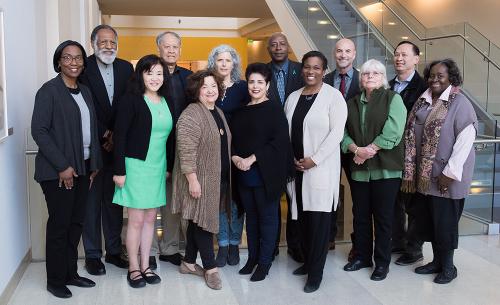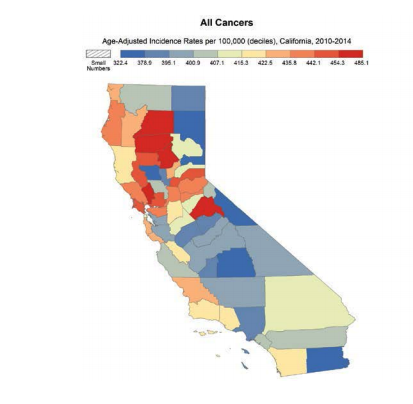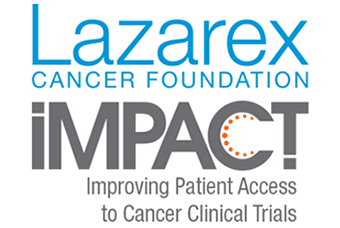Cancer disparities reflect the interplay among many factors, including social determinants of health, behavior, biology, and genetics—all of which can have profound effects on health, including cancer risk and outcomes.
Office of Community Engagement
The Office of Community Engagement aims to eliminate the inequities that cause cancer disparities in the HDFCCC Catchment Area by sustaining year-round, non-transactional community engagement, facilitating community-academic partnerships for research & service, and disseminating cancer information to increase awareness & knowledge.
Cancer Control Program
This NCI-funded Program aims to develop, implement, and disseminate research that will reduce cancer risk, incidence, morbidity, and mortality, and improve the quality of care and life for all people with cancer. The Program's transdisciplinary approach enables members to collaborate with one another, other HDFCCC Programs and Shared Resources, community partners, healthcare systems, and policy makers. The Program has a specific focus to address cancer disparities.
Improving Patient Access to Cancer Clinical Trials
IMPACT is a 3-year pilot study with a comprehensive approach to improving patient enrollment, retention, minority participation and equitable access in oncology trials. UCSF is excited to be one of several institutions participating in this landmark study.
San Francisco Cancer Initiative
The goal of SF CAN is to reduce the cancer burden across the city by harnessing innovative science, new technologies and our knowledge of needs of all the citizens of San Francisco.
SF CAN is targeting the five most common cancers which collectively account for half of all new cancers in San Francisco: breast, colorectal, liver, lung and other tobacco-related cancers, and prostate cancer.

Disparities Research at UCSF
- The Center for Vulnerable Populations carries out innovative research in health communication and health policy to prevent and treat chronic diseases, and reduce health disparities in vulnerable populations through community engagement and empowerment.
- The DREAM Lab. Documenting cancer health disparities and identifying their underlying drivers is a central focus for the DreamLab. We use population-based and other large and representative data sources to quantify the extent of disparities across the cancer continuum, from risk factors to genetic susceptibility, to risk and incidence, and treatment and outcomes.
Menthol and Flavored Tobacco Products
Researchers at UCSF and beyond are concerned about the health effects of menthol and other flavored tobaccos which have been disproportionately marketed to communities of color.




